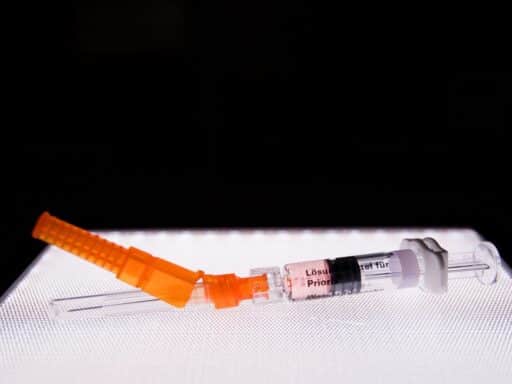The pandemic is interrupting measles vaccine programs around the world.
The last several years have been terrible for measles, the highly contagious — and vaccine-preventable — childhood disease. And, unfortunately, because of the Covid-19 pandemic, the next few years are shaping up to be much worse.
Measles cases increased by 556 percent globally by 2019 from a historic low in 2016, according to a new Morbidity and Mortality Weekly Report study. Around the world, measles deaths also shot up by nearly 50 percent in that period.
What’s driving the trend? It’s quite simple: “The fundamental cause of the resurgence was a failure to vaccinate,” the report authors, from the World Health Organization (WHO) and US Centers for Disease Control and Prevention (CDC), found. (In the US and around the world, this trend is being driven by vaccine skepticism and barriers in access to health care.)
What’s more, the authors warned the Covid-19 pandemic is poised to worsen the spread of measles. Already, there’s evidence that lockdowns and disruptions to health care in the last eight months have led to a drop-off in routine childhood vaccinations in the US and globally.
“Covid-19 has had a devastating effect on health services and in particular immunization services, worldwide,” WHO director Tedros Adhanom Ghebreyesus said in a November 6 statement.
US data published in May showed routine childhood vaccinations plummeted in March and April after the government declared a national emergency over the novel coronavirus. The researchers compared vaccine ordering data from pediatricians who work with a federal vaccine program — which provides about half the children in the US with immunizations — this January through April, to the same period last year. The study found a 2.5 million dose drop-off, including a 250,000 dose decline in measles vaccines.
The picture is similar in other countries. In April, infectious disease and public health groups, through the Measles & Rubella Initiative, warned that measles immunization campaigns in 24 countries had already been pushed back and that more would be postponed.
“Campaigns expected to take place later in 2020 in an additional 13 countries may not be implemented,” the group said. “Together, more than 117 million children in 37 countries, many of whom live in regions with ongoing measles outbreaks, could be impacted by the suspension of scheduled immunization activities.”
It may take some time to see the impact of these disruptions in vaccination in the form of new measles cases, Saad Omer, director of the Yale Institute for Global Health, told Vox. Under-resourced public health departments busy responding to the pandemic have fallen short on measuring exactly where gaps in vaccination are occurring. So there are pockets of people susceptible to the even more highly contagious disease going unnoticed.
At the same time, social distancing mandates have created “an artificial scenario” that may be suppressing new infections, he added. People aren’t traveling, much less meeting or even going to school, the way they used to — and when they do, they’re more likely to be wearing masks or taking other precautions, providing fewer opportunities for viruses, including measles, to spread.
When the pandemic slows down and social distancing restrictions begin to lift, Omer is fearing a measles surge.
“This really scares me,” Omer said. “You’re bringing tinder close to fire … and even before that things were going in the wrong direction.”
According to the new MMWR report, the annual reported measles incidence dropped to 18 cases per million population globally in 2016, and by 2019, it had risen back up to 120 cases per million. In 2020, the pandemic is “leading to fewer children receiving vaccinations and poorer surveillance,” the study authors warned.
The US should organize a national vaccination catch-up campaign right now to make sure everybody who missed their shots earlier in the pandemic can get vaccinated, Omer said. But, with Covid-19 cases and deaths reaching new heights and a lame-duck president in the White House for two more months, help isn’t coming fast enough.
Author: Julia Belluz
Read More



